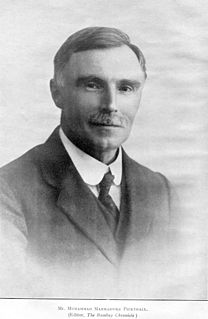A Quote by Rick Warren
Law is downstream from culture. By the time you make a law about something, you're reacting, not acting. I'd rather shape the culture.
Related Quotes
In the eyes of history, religious toleration is the highest evidence of culture in a people. It was not until the Western nations broke away from their religious law that they became more tolerant, and it was only when the Muslims fell away from their religious law that they declined in tolerance and other evidences of the highest culture.
There are things that I am passionate about, whether it's the season or just kind sort of what is necessary for culture. I like the idea that I can shape the culture in any shape or form that I can in whatever topic. But a lot of times, for me, it is about representing "the other," whoever "the other" is.
Many teachers of the Sixties generation said "We will steal your children", and they did. A significant part of America has converted to the ideas of the 1960s - hedonism, self-indulgence and consumerism. For half of all Americans today, the Woodstock culture of the Sixties is the culture they grew up with - their traditional culture. For them, Judeo-Christian culture is outside the mainstream now. The counter-culture has become the dominant culture, and the former culture a dissident culture - something that is far out, and 'extreme'.
The law is equal before all of us; but we are not all equal before the law. Virtually there is one law for the rich and another for the poor, one law for the cunning and another for the simple, one law for the forceful and another for the feeble, one law for the ignorant and another for the learned, one law for the brave and another for the timid, and within family limits one law for the parent and no law at all for the child.






































